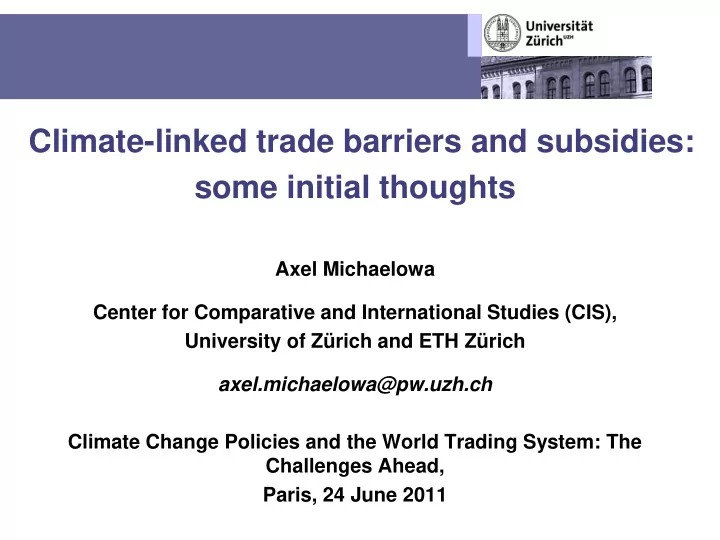

Climate-linked trade barriers and subsidies: some initial thoughts Axel Michaelowa Center for Comparative and International Studies (CIS), University of Zürich and ETH Zürich axel.michaelowa@pw.uzh.ch Climate Change Policies and the World Trading System: The Challenges Ahead, Paris, 24 June 2011
Subsidies and trade barriers in current climate policy • There is a plethora of mitigation- and adaptation related subsidies • Exemption of industries from Danish carbon tax since 1996 • Dutch CERUPT programme since 1998 • UK “auction” of emissions allowances 2003 • Support of CCS projects through auctioning of EU allowances • Japanese feasibility studies for mitigation in developing countries since 1998 (discrimination against non-Japanese!) • Japanese bilateral mechanism projects since 2010 • There is a significant number of mitigation-related trade barriers • EU import ban of Certified Emission Reductions (CERs) from non-LDCs from 2013 • EU import ban of CERs from industrial gas projects from 2013
The gorilla in the room… • No one has dared to raise a dispute on either the subsidies or the trade barriers • Fear of jeopardizing the climate policy regime • Feeling that subsidy level / degree of trade barrier did not justify transaction costs of dispute settlement • Mostly a few tens of million € • This is likely to change in the fragmented post-2012 climate policy world • There will probably not be any centralized regime that could be brought down by a dispute • The stakes in the disputes increase • Import ban of CERs could lead to losses of several billion € • Introduction of border tax adjustments could pull the trigger
Recommend
More recommend